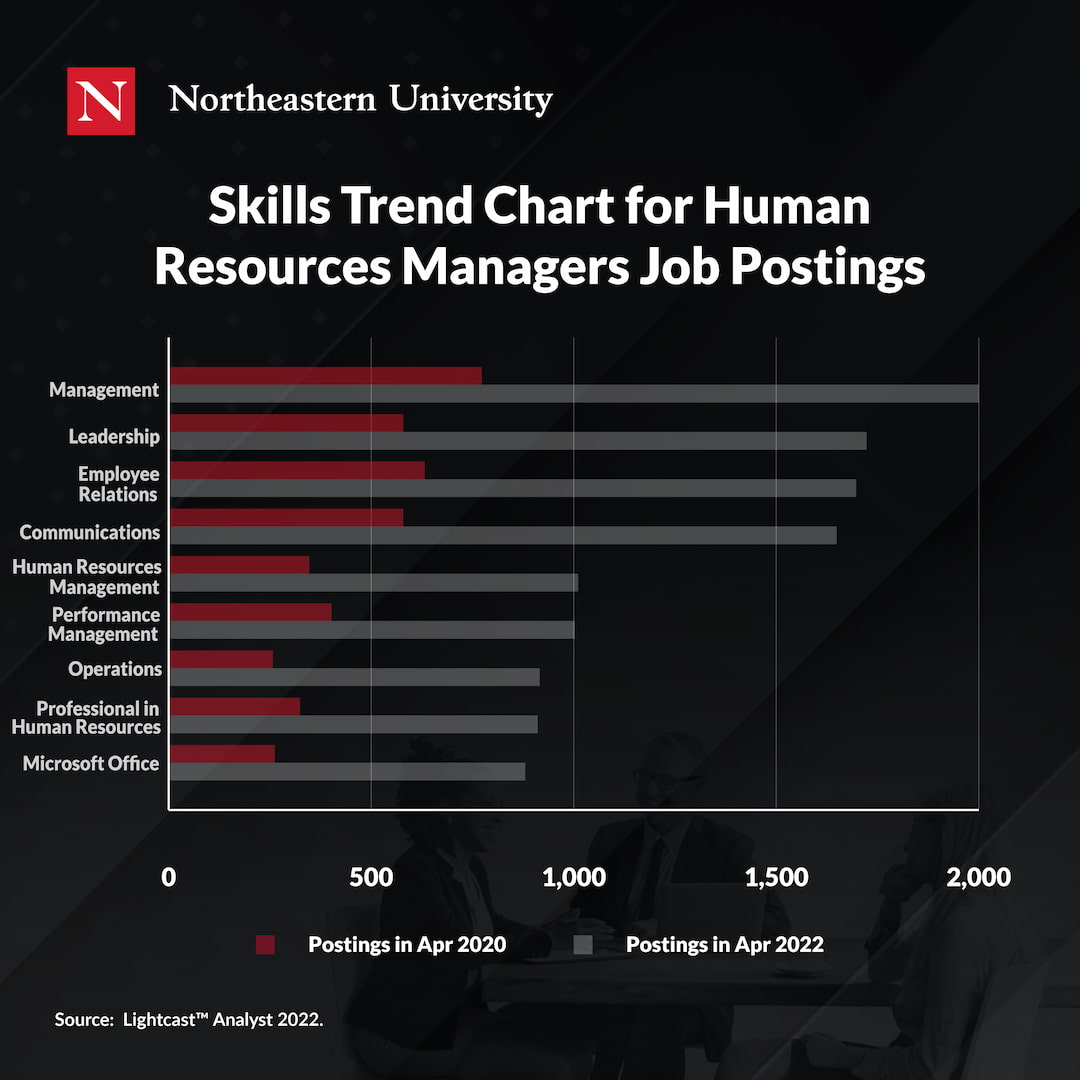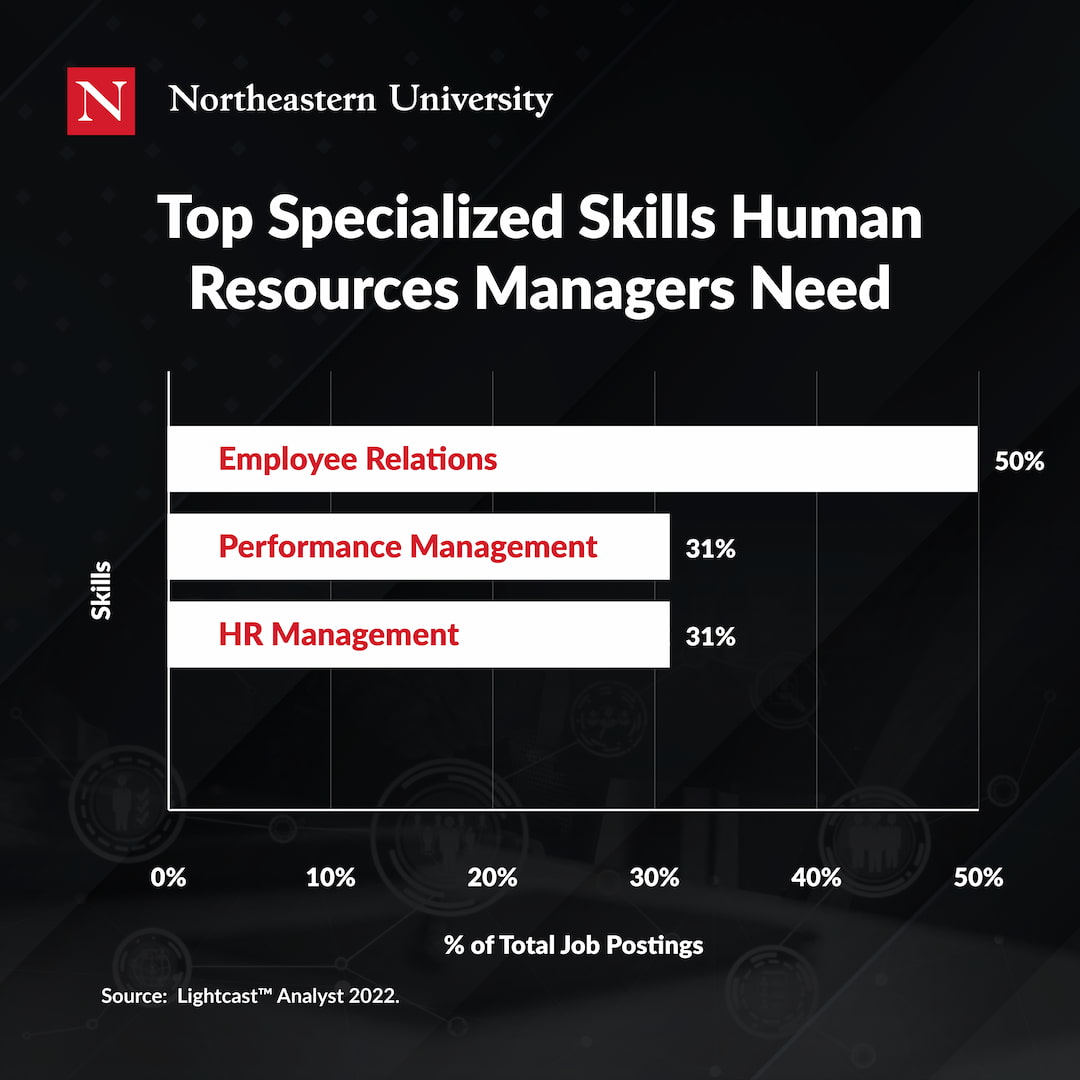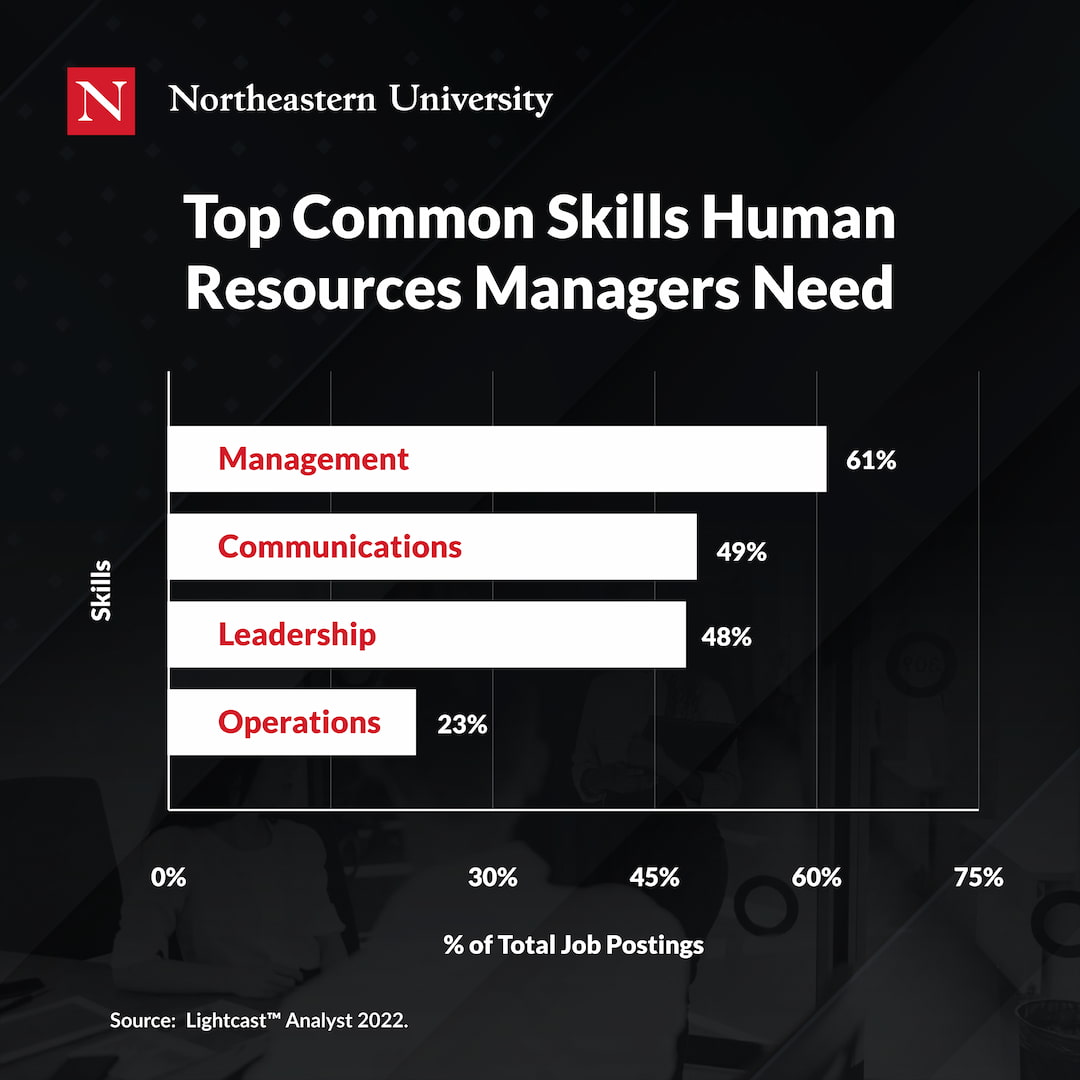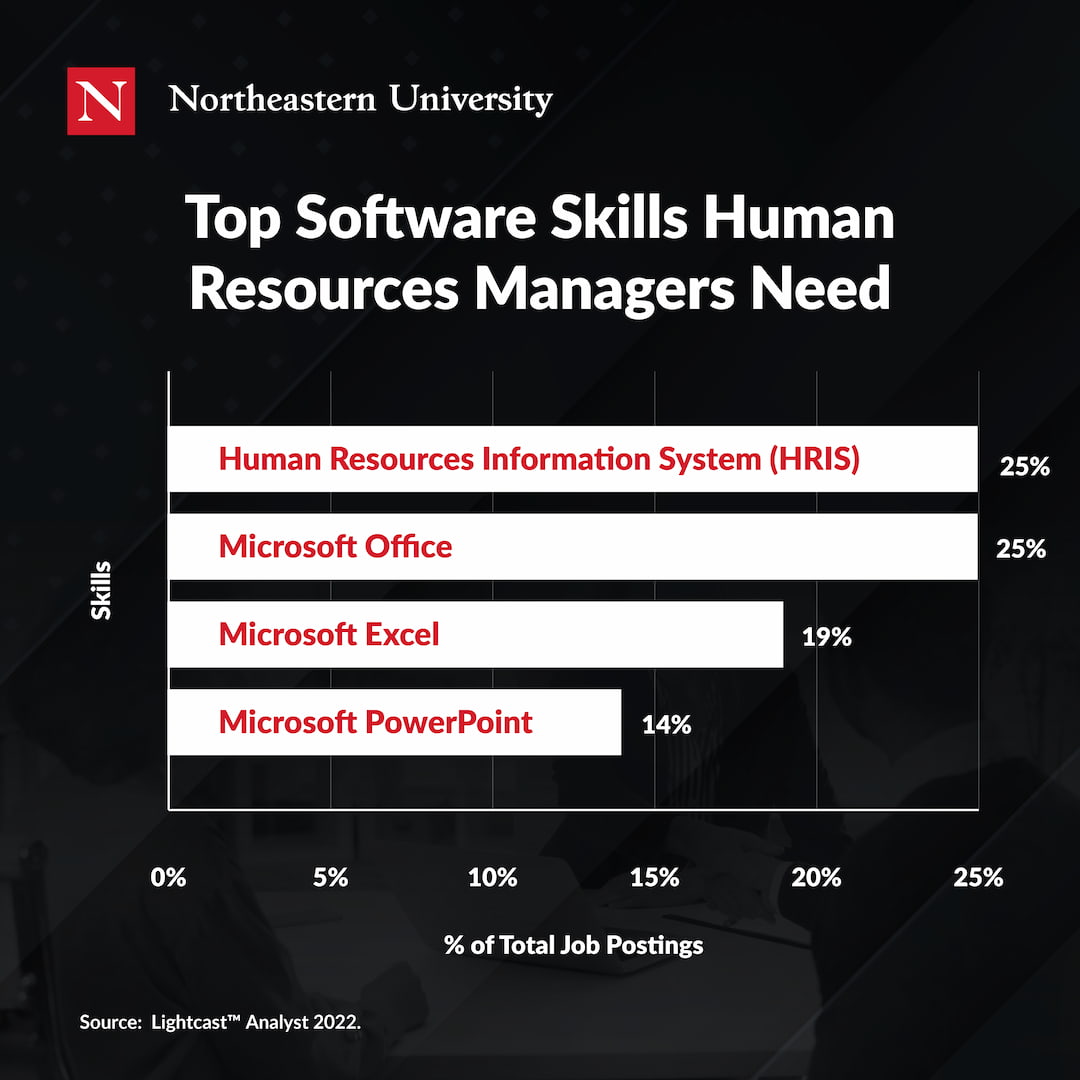Successful organizational leaders in all industries are expected to be lifelong learners and continue to develop their skills to stay ahead in an increasingly competitive market. According to the Society for Human Resources Management (SHRM), HR is “one of the fastest-growing fields in the United States,” with rising salaries that are increasingly impacted by a candidate’s certifications or specialized training.
This expectation also extends to management positions in nearly all industries. Prospective employers often expect upper and middle management to possess the same skill set as a human resources manager. But why has there been such a shift in leadership expectations?

Why Are Organizational Leadership Skills So Important?
While technical, industry-specific skills set a resumé apart when applying to all organizational leadership roles, these skills comprise only a small portion of the competencies professionals need to succeed. Aspiring leaders hoping to advance within their organization must grow their professional leadership skills.
“Technical expertise will help you succeed as a first-level manager. But if you aspire to senior-level management positions, or maybe the C-suite, you will need to demonstrate leadership skills, such as organizing and creating highly effective teams, working with various cultures and backgrounds in a global work environment, and having a clear understanding of how coaching and mentoring will support your organization’s mission and vision,” says Les Stein, assistant teaching professor and faculty lead of Northeastern University’s Master of Science in Organizational Leadership program.
For human resources managers, the expectation of effective leadership skills is high across all industries. Employers are looking for individuals who can start effecting real change and establish camaraderie from day one. “Someone in human resources management should ask themselves, ‘how can I lead a human resources team and take them to the next level?’” Stein explains.
Whether you’re looking to break into human resources management, or trying to move up the ladder in a different field, understanding the top skills required for human resources managers is essential to breaking into any position of organizational leadership.
Top Skills Every Human Resource Manager Should Have
Human resources managers are the pinnacle of organizational leadership. As such, the required skill set is extensive and covers a wide range of competencies. Here’s a look at the top specialized, common, and software skills you’ll need to become a human resources manager.
Specialized Skills
Prospective HR managers should focus on developing specialized skills that make them successful leaders. According to a Lightcast report, the top specialized skills HR managers should consistently work to develop and improve on are:
- Employee relations: Managing relationships and communication between employees and leadership, addressing employee complaints and concerns, and maintaining morale. These are crucial and highly specialized skills that most HR leaders must obtain.
- Performance management: Focusing on the performance of employees, departments, or organizations as a whole. HR managers who are adept at performance management help foster work environments where everyone can perform their best.
- Human resources management: Handling HR management tasks, such as compensation, recruitment, hiring, performance management, organizational development, workplace safety, benefits, wellness, and training.

Common Skills
While specialized skills are important for HR managers who want to stay at the top of their field, it’s important to continue to develop and demonstrate common leadership skills as well. According to a Lightcast report, the most reported common skills HR managers need to stay competitive are:
- Management: Understanding and managing various organizational items, such as workplace safety, training, recruitment, and employee engagement. HR managers who are well-rounded and competent leaders possess this crucial common skill.
- Communication: Acting as the interpreter for both employees and organizational leadership requires excellent communication and the ability to influence and instill trust in people across the organization.
- Leadership: Guiding key organizational stakeholders, such as executives, employees, and company stakeholders, to ensure consistent messaging and operations.
- Operations: Working across various functions and departments within the organization that requires in-depth knowledge of multiple processes and operations.

Software Skills
Software has become a critical component of all industries and fields. In a world where everything is tracked by computer rather than paper, human resources responsibilities—both clerical and complex—have moved to software programs.
As a result, human resources managers should continue to learn new systems and become experts in current software as they evolve and update. According to a Lightcast report, the top four software skills HR managers should refine and maintain are:
- Human Resources Information Systems (HRIS): Provides HR professionals with the comprehensive tools to maintain a centralized list of employee data for their organizations. HRIS software also helps track employee time, attendance, performance, and benefits and assists with HR-related accounting tasks.
- Microsoft (MS) Office: Hosts solutions from recruiting and onboarding to performance management to employee administration and engagement. Since this software is constantly evolving, HR leaders should continue to explore and study MS Office to better understand its capabilities.
- Microsoft Excel: Helps human resources managers analyze employee data and saves organizations valuable time. HR managers should familiarize themselves with Excel’s countless functions and formulas since this is a popular tracking tool among employers.
- Microsoft PowerPoint: Assists managers in presenting important information and initiatives to employees in a clear, engaging, and enjoyable way with built-in visuals and templates.

Develop the Right Skills with a Master’s Degree
Undergraduates who want to prove they’ll go the extra mile to acquire the proper leadership skills should strongly consider earning a master’s degree in organizational leadership. This degree demonstrates a motivation to go above and beyond and become true experts in the field. While a recent Lightcast report found that only 15 percent of human resources management job postings between April 2020 and April 2022 required a master’s degree, this statistic reveals a significant opportunity for prospective leaders to stand apart from other applicants.
Finding the right MS program can help students develop the skills necessary to stay competitive in the increasingly rewarding world of leadership. Programs like Northeastern’s Master of Science in Organizational Leadership degree use hands-on experience as an effective method of learning industry knowledge and developing cutting-edge leadership skills.
“We expect our students to arrive with the technical skills of their industry,” Stein says. “But the question is how do they want to position themselves for promotion or competition within the industry against people with similar technical backgrounds.” An experiential degree is one way to position yourself in today’s thriving organizational leadership job market and put your leadership skills to the test.
Learn more about the Master of Science in Organizational Leadership at Northeastern and take your first step toward a career in this exciting field today.






Related Articles
Master’s in Project Management or an MBA: What’s the Difference?
5 Practices of Exemplary Leaders
Why You Should Get an MBA